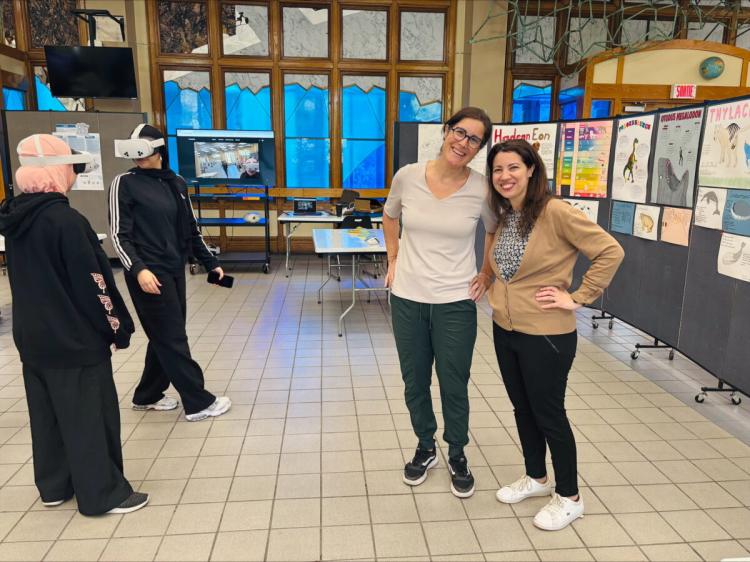
A student can read about autism in a textbook or they can have a transformative learning experience that builds empathy by putting on a virtual reality headset and stepping into the world of someone living with autism.
Two Dawson College teachers are leading a Virtual Pedagogies project, supported by ECQ funding, to bring more of these immersive, embodied learning experiences to students. The funding has enabled the purchase of VR headsets and accessories, as well as the development of customized educational games designed to meet specific learning objectives.
"We're collaborating with game designers and programmers to create an experiential game that aligns with our class objectives in psychology and biology,"
said Biology teacher Annie-Hélène Samson.
"In the psychology module, students will explore what it's like to live with conditions such as prosopagnosia, an inability to recognize faces. Since individuals with this condition often rely on tone and pitch of voice to identify others, the biology module will complement this by focusing on the auditory system as an example of a sensory pathway.
"Students will engage with interactive challenges that involve triggering hair cells in the inner ear, activating sensory neurons along the auditory pathway, and releasing neurotransmitters at synapses-all culminating in the interpretation of sound signals by the brain's auditory cortex. We also use a readily available app to teach brain function and anatomy."
Annie-Hélène Samson and Psychology teacher Selma Hamdani have been using Virtual Reality Pedagogy throughout the past semester. While VR is already widely used in technical programs, especially in the medical field, its benefits extend to many other disciplines. Selma shared examples such as a French Revolution app that allows learners to experience historical events firsthand, or immersive environments for visual arts students.
According to Annie-Hélène Samson, this approach "deeply engages students and sparks motivation. One student, after trying a VR app at Science Fest on May 7, exclaimed: I could learn all day with this!' "
Selma added: "As instructors, we've observed remarkable engagement. We're excited to see how this approach continues to grow in future semesters."
"Virtual Reality pedagogy harnesses experiential learning to offer students truly unique opportunities. Rather than simply reading about the material, students immerse themselves in it, learning by living the experience. We heard students say wow' so many times."
The Virtual Reality Pedagogy project will continue in the 2025-2026 academic year within a Faculty Learning Community called Immersive Pedagogy: Transforming Education with VR, led by Selma Hamdani. This community will bring together teachers from a range of programs and departments, including Business Administration, Diagnostic Imaging, and History, to further explore and expand the transformative potential of VR in education.












